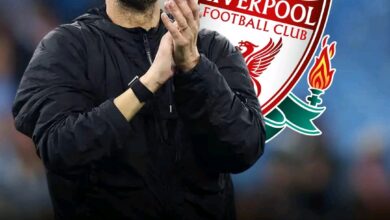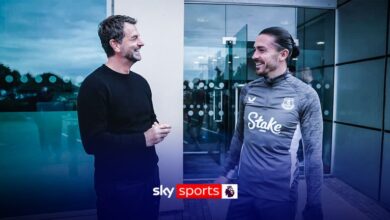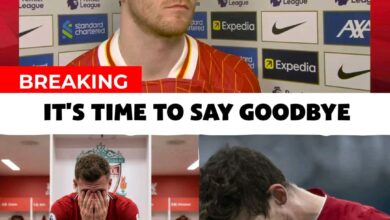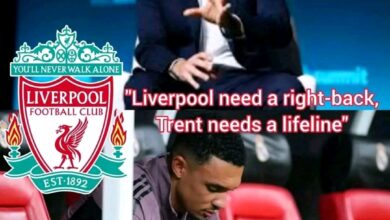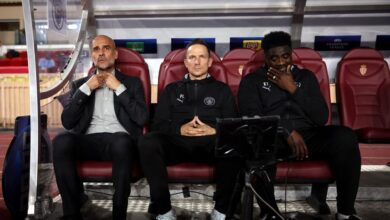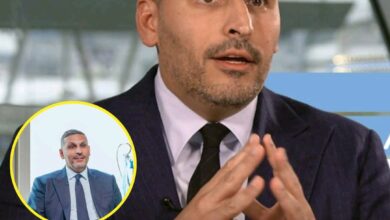The key Man City fixtures Omar Marmoush could miss after confirmed news
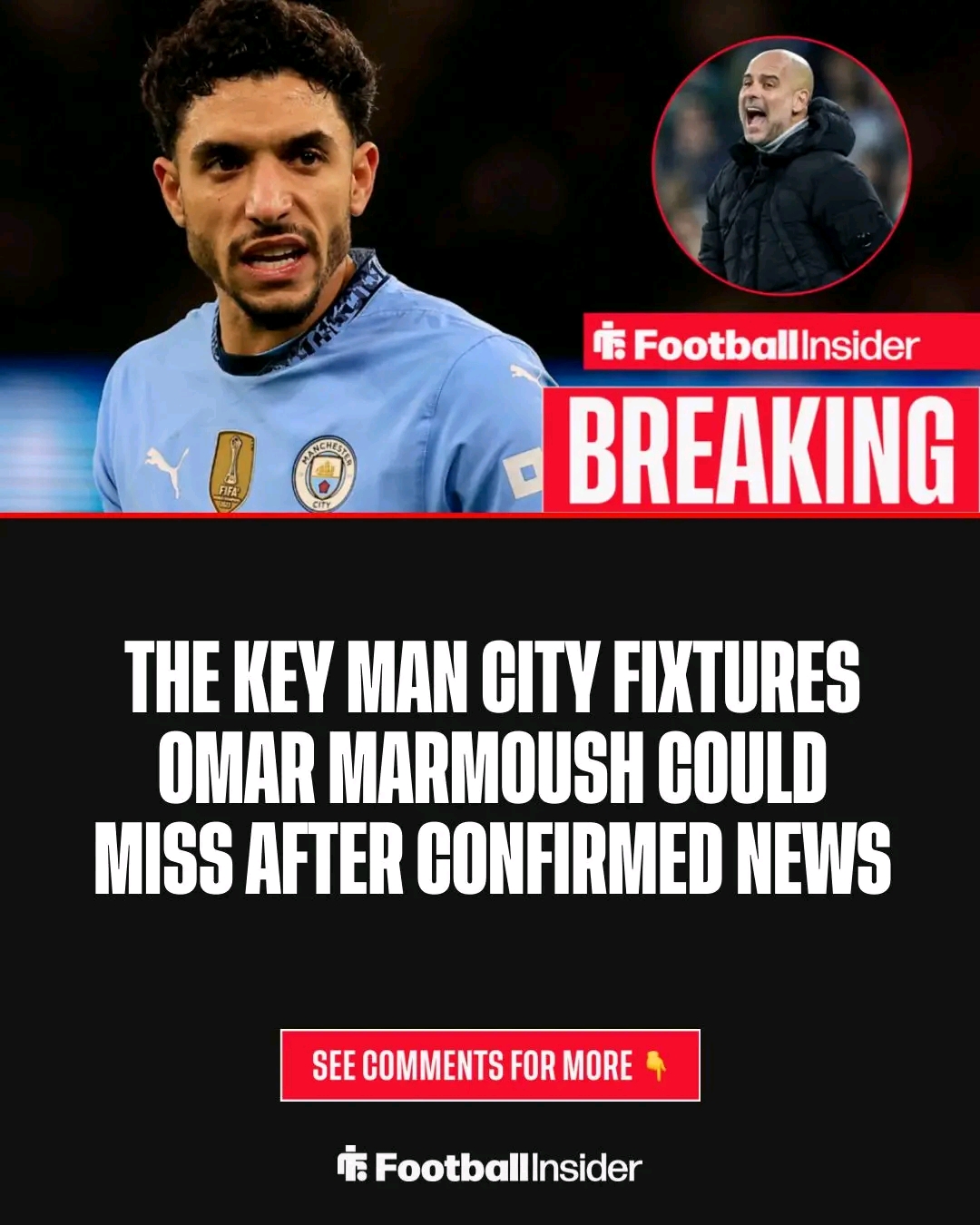
Manchester City’s perfect plans for the season have taken another unwanted twist. Pep Guardiola, already battling injuries to several key players, has now received confirmation that Omar Marmoush will be sidelined for weeks after suffering a knee injury on international duty with Egypt. For City, who are preparing for the Manchester derby at the Etihad, the timing could not have been worse. For Marmoush, who had just started to find his rhythm in Guardiola’s demanding system, the setback feels cruel. And for the fans, who had begun to embrace the Egyptian forward as one of their own, the news has come as a gut punch ahead of a vital run of fixtures.
The story began just ten minutes into Egypt’s World Cup qualifier against Burkina Faso. Marmoush, trusted to lead his national team from the front, suddenly dropped in pain after a challenge. The knee was the problem. He tried to continue, but the pain was too much. He was forced off, his night over almost as soon as it had begun. What looked at first like a minor issue has now been confirmed as an injury serious enough to keep him out for “a few weeks,” as Guardiola admitted in his pre-derby press conference.
That phrase—“a few weeks”—can mean a lot in football. In City’s case, it could mean missing not only the clash with Manchester United but also vital Premier League games against Arsenal and Burnley, plus Champions League meetings with Napoli and Monaco. Guardiola’s words carried a strange mixture of calm and frustration. “Omar is injured from Egypt,” he told reporters. “A few weeks I think. Before the next international break, he will be ready.” The hope is that Marmoush could return by October 5th when City face Brentford, but nothing is guaranteed.
Marmoush’s absence is a blow because he has become quietly important to City since arriving in the winter transfer window. Signed to add another attacking option, the 26-year-old has already delivered eight goals and two assists in 28 appearances. He may not yet have the global superstar status of Erling Haaland or Kevin De Bruyne, but within Guardiola’s rotating system, Marmoush has provided energy, versatility, and unpredictability. He even scored the **Guinness Goal of the Season** for a thunderbolt against Bournemouth back in May, a strike that made City fans believe he could be more than just a squad player.
Now, that momentum is halted. Guardiola’s injury list is growing: Rayan Cherki, Rayan Aït-Nouri, and John Stones are all unavailable or doubtful. And with Bryan Mbeumo tipped to test City’s patched-up defence when Brentford arrive later, the manager’s options are narrowing fast. What once looked like a City squad overflowing with quality now looks stretched.
The bigger issue is timing. City have already lost twice this season, a reminder that dominance cannot be taken for granted. Every game in the Premier League matters, especially when Arsenal, Liverpool, and Chelsea are all pushing hard. Every Champions League group game carries weight, especially when Napoli and Monaco are involved. And then there is the derby—Manchester City versus Manchester United—one of the fixtures where Guardiola and his players know that fans demand nothing but victory. Losing Marmoush right now feels like fate playing a cruel hand.
But football is not just about who is missing. It is also about who steps up. Erling Haaland has returned from international duty unscathed, and whenever the Norwegian is fit, City always have hope. Jeremy Doku’s speed is available. Oscar Bobb, the young talent, could get more minutes. Bernardo Silva remains one of the most intelligent midfielders in the world. And then there is Phil Foden, the boy who has been doubted in recent weeks, the boy who has been told to rediscover his joy. Marmoush’s injury could open a door for Foden to remind Guardiola and England why he was once seen as untouchable.
Each of these matches carries a story of its own. Against United, City cannot afford weakness. Against Napoli, every Champions League point matters. Against Arsenal, dropping points could hand momentum to Mikel Arteta’s men. Marmoush’s absence may not decide these games alone, but it changes how Guardiola must approach them.
For Marmoush, the injury is also personal. He came to Manchester City to prove he could thrive at the very highest level. He wanted to show that an Egyptian forward could shine in one of the best leagues in the world, following the path blazed by Mohamed Salah. He had started well, with goals, assists, and moments of magic. He was beginning to win trust from Guardiola, which is never easy. And now, just as his chance to cement his place arrived, his body betrayed him.
Yet there is hope in Guardiola’s words. The manager suggested this is not a long-term injury. He expects Marmoush back before the next international break. If true, it means the forward will miss some battles but not the entire war. It means he could still play a role in the season’s defining months. It means this setback is frustrating but not fatal.
For now, City fans must live with uncertainty. They will wonder how their side will cope without Marmoush, especially with Stones still a doubt and Cherki and Aït-Nouri unavailable. They will place their faith in Haaland, Doku, Silva, and perhaps Foden. And they will hope that Marmoush returns not only fit but stronger, hungrier, and ready to contribute when it matters most.
Because this is what football does: it tests. It tests players physically, mentally, and emotionally. It tests squads, revealing whether depth is real or just an illusion. It tests managers, forcing them to adapt. And right now, Manchester City are being tested.
Marmoush’s injury is just another part of that test. The nightmare fixture list will not wait. The derby will arrive, with or without him. Napoli will come to the Etihad. Arsenal will host City at the Emirates. The games will keep coming. And when Marmoush finally returns, he will know that the time he lost must be made up with performances that prove why City believed in him.
For the fans, the memory of his stunning strike against Bournemouth still lingers. That was the Marmoush they fell in love with. That is the Marmoush they want back. And when he steps onto the pitch again, they will roar his name, hoping he can once more deliver the magic.
Until then, the story belongs to Guardiola and the rest of the squad. Can they survive this storm? Can they keep winning while injuries pile up? Can they keep their title dreams alive without one of their rising stars?
The answers will come on the pitch. But one thing is already clear: Omar Marmoush’s absence has turned a difficult September into a brutal test of Manchester City’s resilience. And in football, it is in these moments of crisis that champions are truly revealed.







